Movie Review – American Gangster
American Gangster is a modern crime classic; it rightly stands alongside The Godfather and Goodfellas as one of the most brutal, uncompromising, flat-out-brilliant portrayals of crime in America ever put to the screen. Magnetic leading performances anchor this terrific ensemble: Ridley Scott has crafted a brilliant film here.
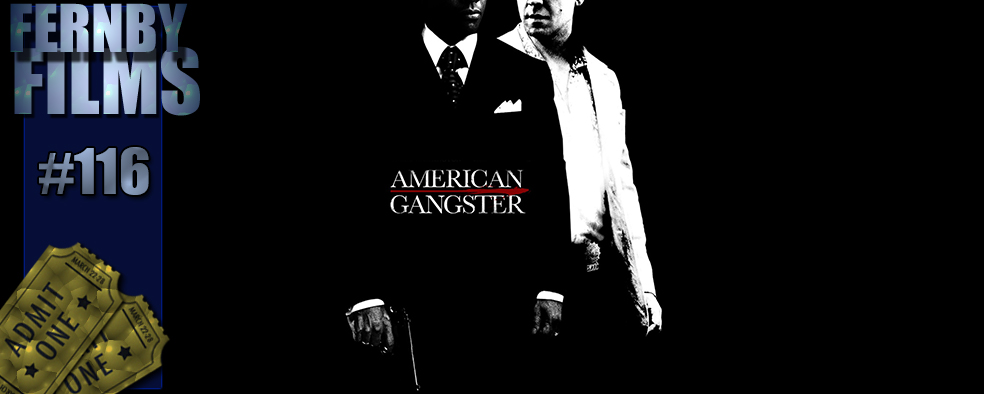
– Summary –
Director : Ridley Scott
Year Of Release : 2007
Principal Cast : Denzel Washington, Russell Crowe, Ted Levine, Cuba Gooding Jr, Ruby Dee, Josh Brolin, Clarence Williams III, TI, Carla Gugino, Common, Idris Elba, John Ortiz, Chiwetel Ejiofor, Norman Reedus.
Approx Running Time : 158 Minutes
Synopsis: In 1970s America, a detective works to bring down the drug empire of Frank Lucas, a heroin kingpin from Manhattan, who is smuggling the drug into the country from the Far East.
What we think : American Gangster is a modern crime classic; it rightly stands alongside The Godfather and Goodfellas as one of the most brutal, uncompromising, flat-out-brilliant portrayals of crime in America ever put to the screen. Magnetic leading performances anchor this terrific ensemble: Ridley Scott has crafted a brilliant film here.
**********************
Riveting, superbly produced adaption of a true-life story, based around Harlem Drug King and gangster Frank Lucas, and an honest cop looking to bring him down. American Gangster is a tour-de-force film from director Ridley Scott, a bloody, violent, gritty, urban epic set in amongst the sprawling brownstones of New York and Jersey. The film is awash with a dirty, sepia toned feel throughout, the sun-bleached streets of Harlem running thick with crime, drugs and blood. It’s the beginning of the 70’s, the war in Vietnam is still going strong, and the smell of change hangs heavy in the air. It’s a time before cell-phones, cybercrime, and microwaves. The heat, the stink, the grime, they all permeate every frame of this superb film to utterly transfix and captivate the viewer who is willing to involve themselves inside it’s labyrinthine pathways.
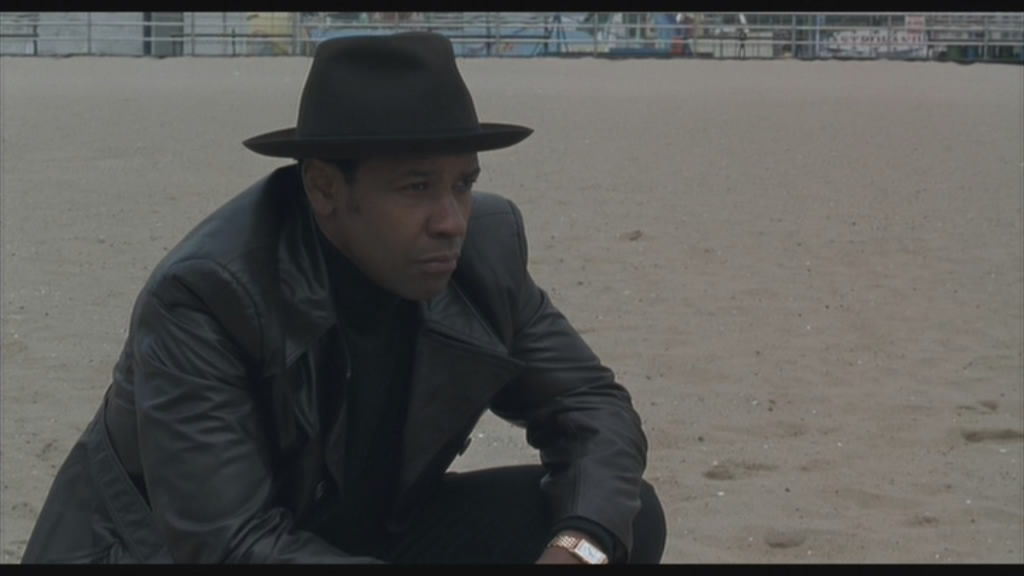
Denzel Washington and Russell Crowe co-star as the main antagonists, Washington playing real-life gangster Lucas, while Crowe brings a kind of tormented frustration to his part as the straight-arrow cop Richard “Richie” Roberts. Roberts, while being an honest cop in a city full of corruption within the ranks, still manages to sleep around and get up to mischief in his personal life, and, according to the film, is playing out a custody hearing for his son throughout the proceedings. While Crowe and Washington don’t get a whole lot of screen time together, it’s the cat-and-mouse pursuit of the crime lord by Crowe that ratchets up the tension and emotional punch that comes so easily to both stars, and to Scott himself.
Lucas, a former right-hand-man to the legendary “Bumpy” Johnson, takes over the gangster business when his mentor and father-figure passes away in the middle of an electronics store. Frank, fixed with rage over the lack of morals, ethics and courtesy shown by the newer, up and coming crime lords, begins to take control of the drug market within Harlem, by importing a more pure form of heroin into the US that what is currently available. He recruits his brothers and family to maintain the business, ruthlessly taking down any opposition to his plans.
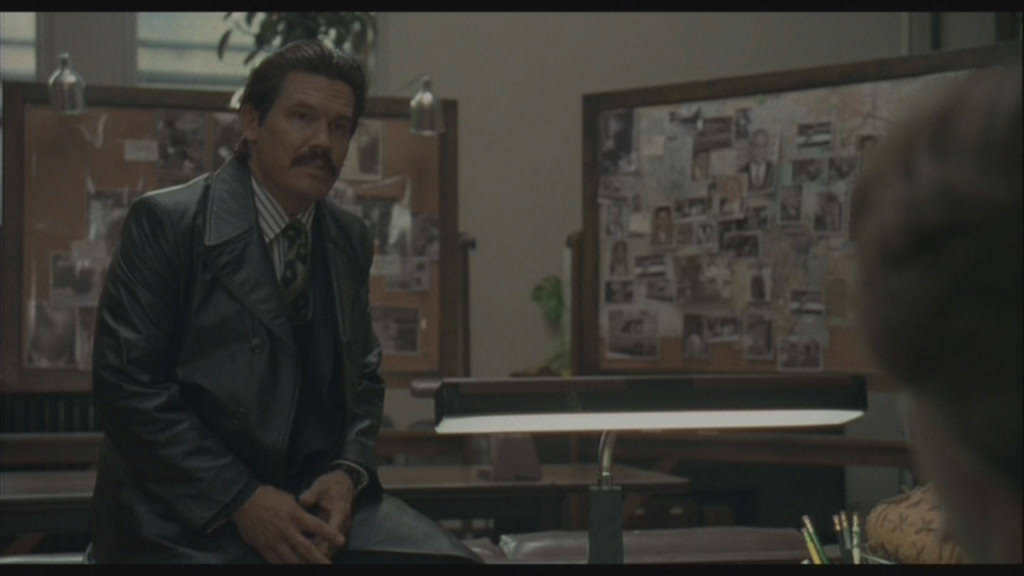
Roberts, meanwhile, after turning in $1m in stolen money without taking any for himself, is rewarded by his precinct by becoming an outcast, mainly due to the fact that none of his colleagues, most of whom are crooked, won’t work with him. He is approached by his superiors to lead a new task force, specializing in the tracking and capturing of drug empires, syndicates and mob bosses. This, of course, leads him towards a collision with Frank Lucas.
Lucas, who is exploiting the rampant drug trade from Vietnam via a friend in the army, finds his world rapidly spinning out of control after attending a boxing match (between Ali and Frazier, if you can believe it!) and coming to the notice of Roberts’ new drug task force. The unwanted attention soon brings crooked cops to his door, assassination attempts, and all-round thuggery, as his rise to power becomes a target for exploitation from the criminal element.
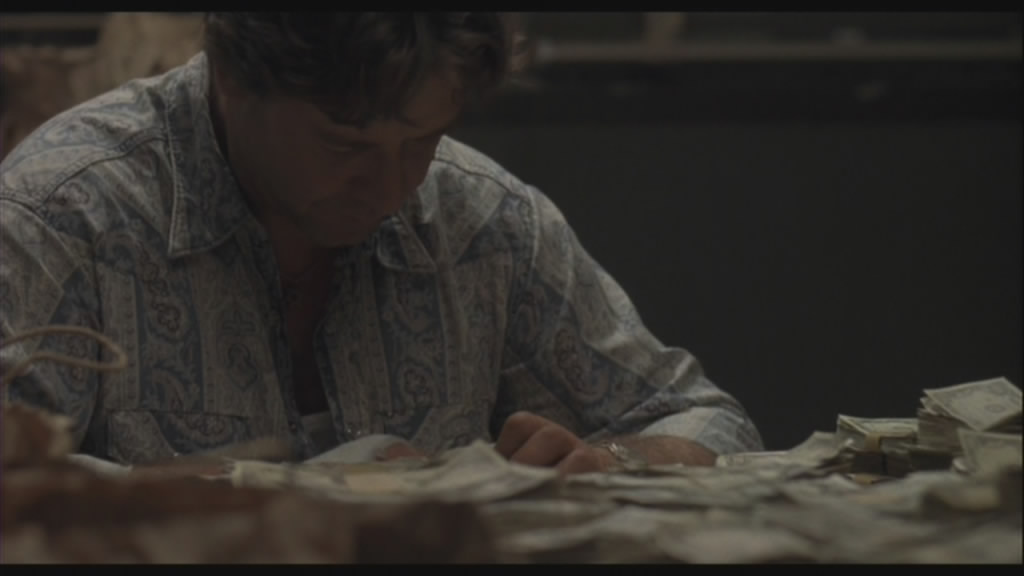
From the outset, it’s pretty clear how this film is going to turn out. After all, Washington is a criminal, and he will eventually get caught. You know he will, but it’s the fascination in knowing how it happens that’s the key thing here. Washington portrays Lucas as an intelligent, refined man of wisdom and fury, someone who wants great things, and almost despises having to do what he does to get it. It’s the control, the power he has created that begins to bring him undone. How can a man of such influence within a community not slowly begin to believe in his own myth, his own legend? He cannot. And this indeed, happens to Frank Lucas. His arrogance, acknowledged or not, is his downfall.
Essentially, American Gangster is really just a tarted up crime drama, although with such an extraordinary cast, and talented people behind the camera, it’s easy to see how they can make a silk purse from a sow’s ear. That’s not to say Stephen Zaillians script is crap: far from it. Zaillian, who previously worked with Ridley Scott by scripting Hannibal, writes in such a natural way, such a descriptive and evocative way, that the characters eke out their stories not by simply talking, but by talking and emoting, developing an relationship with the viewer, taking them on a journey. That journey begins with a simply, inelegant execution of a man by Lucas (flame and fury, cigar burning bright and gunfire ringing out in the dull glimmer of neon lighting) before the opening credits kick in. Lucas, forever the quiet, unassuming churchgoing gangster, has his rage elicited by thuggery and buffoonery: this is not a man who likes to use his own product, or have his own product used in front of him. No, Lucas seems to be a cat prowling through a cage of pigeons, his eyes flickering around to check nobody’s going to fly away. Frank maintains control of his organization through his brother, Hewey, played with wide-eyed steadiness by Chiwetel Ejiofor, who worked with Washington previously as his police partner in Inside Man. Zaillian’s script doesn’t simply tell us what we need to know; often, we have to work it out for ourselves. It’s not a pandering screenplay, it’s not one that caters to people who don’t want to think: it’s a smarty plotted, well written and beautiful example of a screenplay allowing a film to become molded by both cast and director, to be shaped into something it in itself could not have achieved.
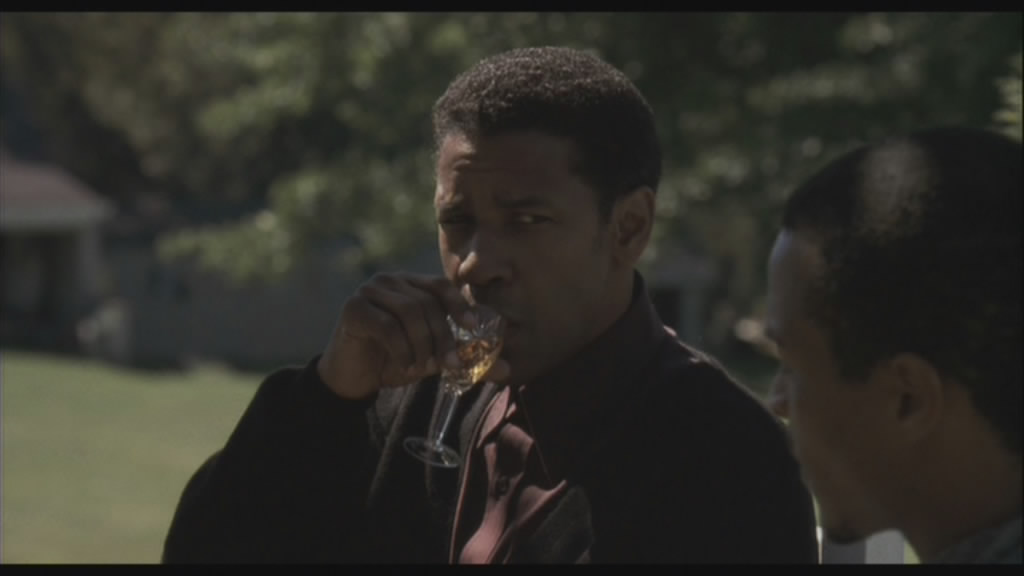
Washington is magnificent. He towers over the film like a giant, his presence whenever he’s on screen is palpable, almost raw, you get the sense of the seething rage barely contained with him as Lucas, his eyes convey the sorrow, the anger, the depths of desperation as his life goes from good, to great, to bad. Washington is ably supported by Crowe, although they never really get much chance to interact. Crowe’s role is not quite as powerful as Washington’s, although he delivers a steady, rock solid performance that’s just as convincing on a character-based level. Roberts is a difficult man to empathize with, or even sympathize with: his divorce and custody hearings don’t go well, although it’s hard to find it easy to side with him given the way he treats his wife. Carla Gugino, barely recognizable from her time in Sin City and those increasingly dire Spy Kids movies, is reduced to a mere bit-part in her role as Roberts wife.
The rest of the cast, which is a slew of big names and character actors, is superb too, backing up the leading men with roles that are believable, realistic, and not once wooden or ill-defined. Josh Brolin (who starred in Robert Rodriguez’s Grindhouse flick, Planet Terror) is a particular standout for me, in his role of corrupt cop Detective Trupo, who blackmails any and all the criminals he comes across. Trupo is a snake, a dirty dirty rat, to paraphrase a misquote from Cagney, who exists simply as a pimple on the sphincter of humanity; he’s got no qualms about taking what he wants, because he believes since he carries a gun and a badge, he is above the law. His gang of fellow cops take what they want, beat up who they want, and nobody touches them. Trupo is the antithesis of everything Roberts stands for: his opposite number, if you will.
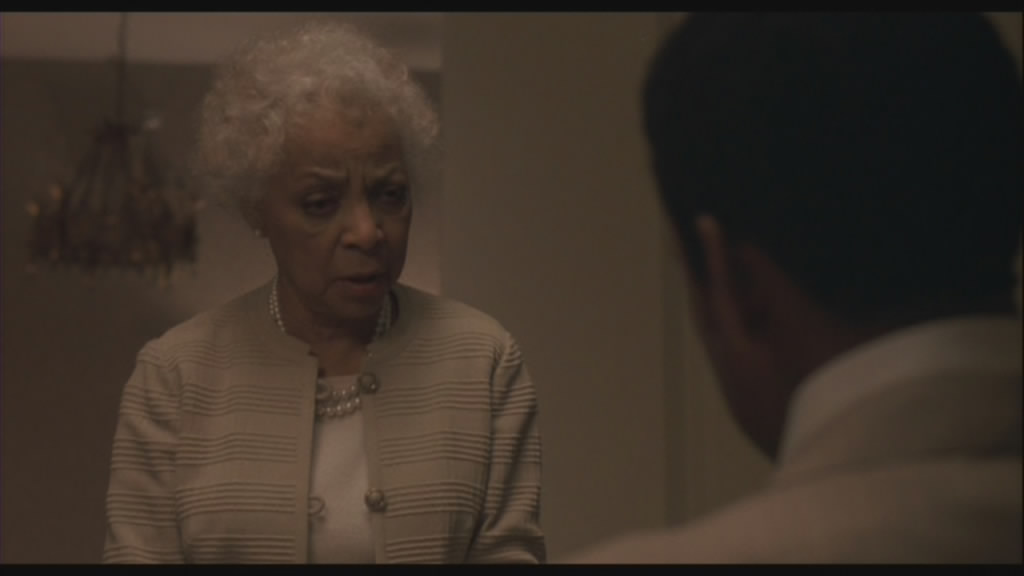
The wonderful Ruby Dee, who was married to fellow actor, writer and social activist Ossie Davis (who Australian audiences last saw in the mainstream battling mummies in Bubba Ho-Tep) plays the Lucas matriarch, a frail, faithful and loyal woman, who asks no questions of her eldest son’s life, although when the police arrive, she is understandably upset with Frank. Dee was nominated for an Oscar for her work here, and to be honest, I have to question that a little. She’s not on screen for long, truthfully, and yes, she’s excellent in her role: but an Oscar? Her role can hardly be classified as a Supporting Role, can it? While I shook my head a little when I read this, don’t let it put you off: even Ruby Dee doesn’t put a foot wrong in the thespian stakes on this film, there’s no bad apples here. But if she was nominated for an Oscar, why wasn’t Washington? He deserved it here.
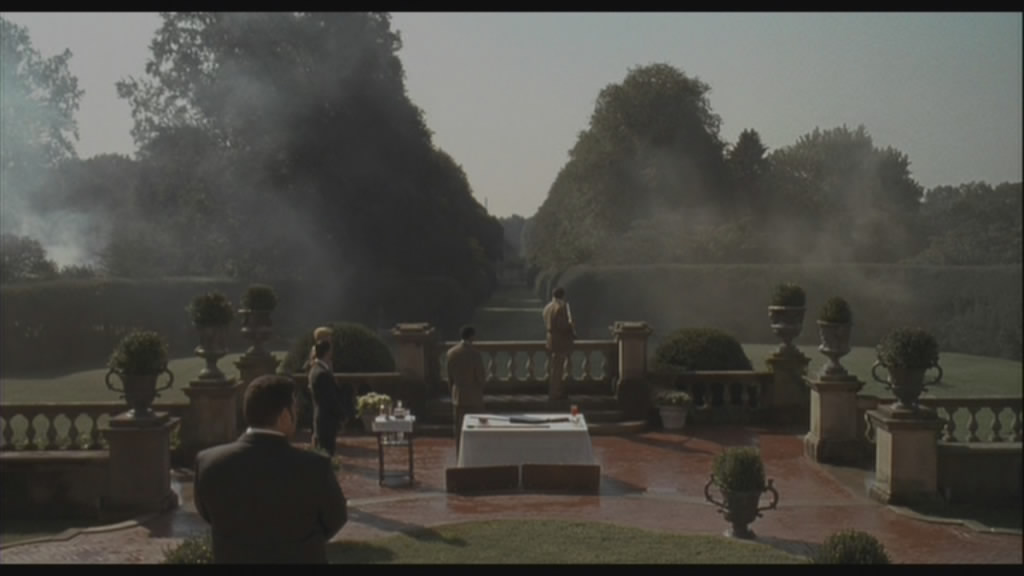
Armand Assante, looking for all the world like he’s had a stroke and just doesn’t know it, mumbles his way through his scenes as a fellow gangster, who teams with Frank to control the city. Cuba Gooding Jr, far away from his Oscar glow now, is barely recognizable as a hoodlum gangster type, an underling and middle-man trading on the glory of Frank’s success. It’s good to see Gooding Jr slumming it a little, in a role that he could rightly have refused to take: still, when Ridley Scott comes knocking, it’s going to be pretty hard to say no. After all, if he can con Gary Oldman into wearing some god-awful prosthetics for Hannibal in which you cannot recognize him, and similarly with Edward Norton in Kingdom Of Heaven, then the director must have some pretty powerful clout within Hollywood.
Now, with every “this is a true story” statement in Hollywood, somewhere a real person is getting screwed over. Of course, not everything in the film, which is based on real people and true events, is historical fact. Only the most idiotic would assume that Hollywood couldn’t take some poetic license when making a film about crime lords and gangsters. After all, gangsters lie and cheat all the time, right? Especially if it serves their interests. Word around the internet is that a lot of what happens in American Gangster is false, albeit intentional or not.
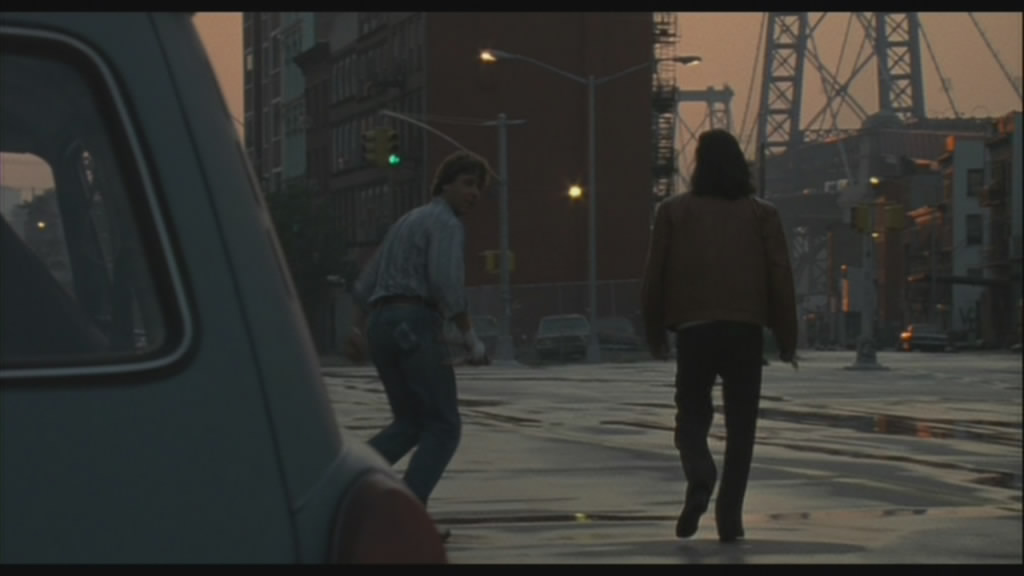
Perhaps the appraisal of Frank Lucas, even though he has paid for his crimes now, as some kind of heroic figure, a mythical Icarus, who flew into the white hot heat of the underworld, had his wings clipped, and fell to earth, is biased, perhaps even inflammatory. After all, when Roberts decries all the men, women and children Frank has murdered through his supply of illicit drugs, it almost (almost, mind you) smacks of a kind of last minute balancing act by Scott: he’s spent the best part of two hours portraying Lucas as a likeable man, an affable man prone to fits of rage against the stupid and dull-witted, but a likeable man nonetheless. Yet we need to be reminded that for all his smiles, all his cheesy, hand-shaking suaveness, he’s still a criminal, preying on human misery and anguish.
This point is proven in undeniable fashion when he murders a fellow gangster in the street, in broad daylight, with hundreds of witnesses looking on. He’s a man not be crossed, a modern Godfather, if you will, who despises the worst of man and yet manages to incorporate it into his business. It’s a dichotomy that’s both enthralling and engaging.
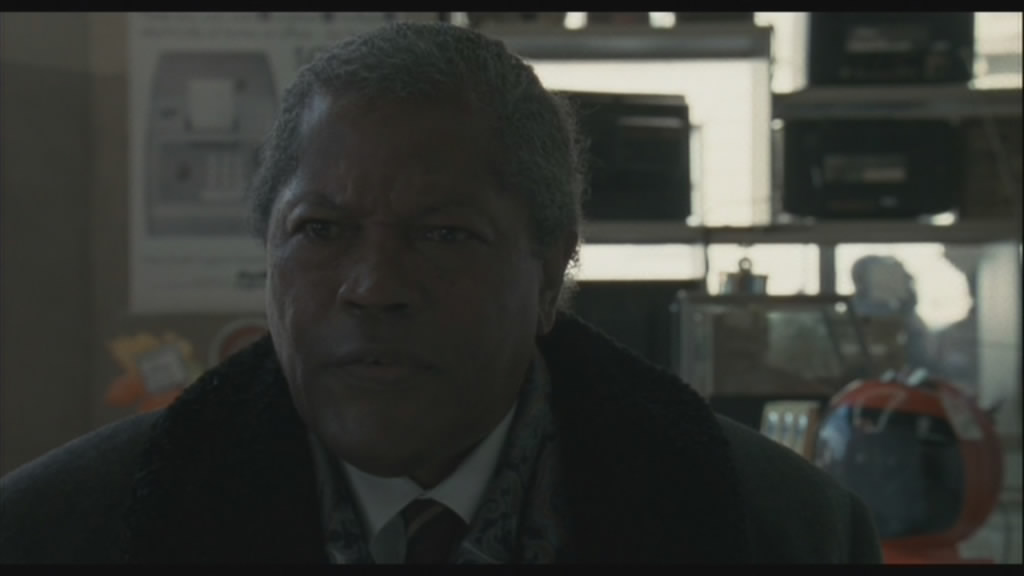
The film is told on a grand scale, although without the broad brush strokes of a David Lean or Robert Wise. It’s epic in narrative, broad in character richness, and rewarding for anybody who watches it. Ridley Scott has filmed American Gangster without flashy camerawork, without large scale effects or Hollywood-isms. It’s straightforward, dramatic storytelling, using the actors as the storytellers, rather than some take-your-breath-away editing and widescreen anamorphism. The film is quite lengthy, yet it never feels slow. Scott allows his actors to work, to allow us to explore them as frail, fallen, fragile human beings; flawed in every way yet still trying to attain the utmost for their family, themselves, and each other. Scott’s framing, his focus, his sense of confusion and frenetic, almost balletic, action sequences are minor upheavals in the more overarching, complex narrative structure.
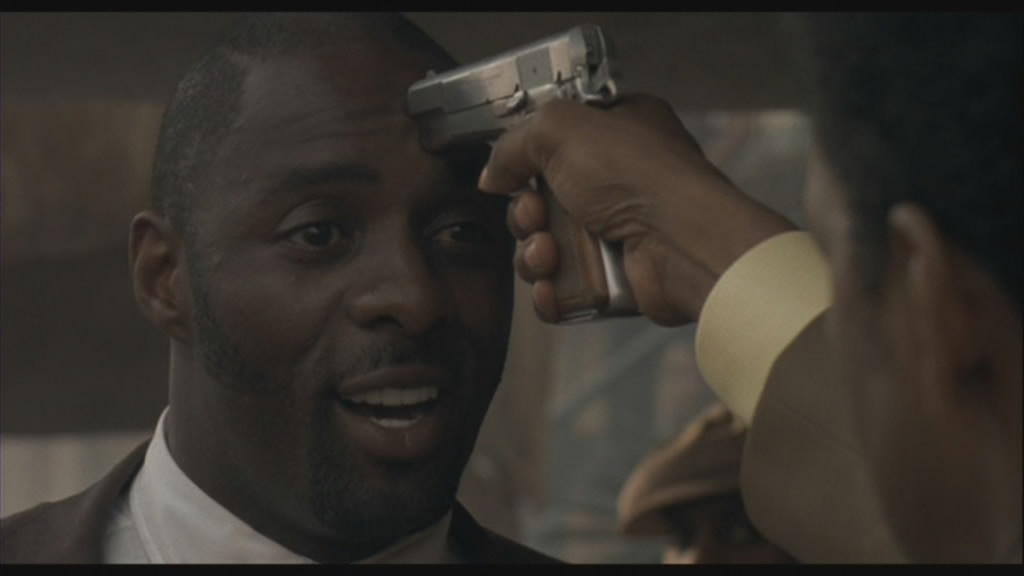
American Gangster is a powerful, definitive film from Ridley Scott, Denzel and Russell. It’s truthfully told, in as much as the characters are merely based on the real people, and perhaps not entirely accurately so (we’ll probably never know) yet whichever the case may be, we’re still drawn into this enthralling story from the very opening. We all love a good gangster flick. Now, we’ve got another one. This film is good enough to stand shoulder to shoulder with the great crime/gangster flicks of the modern time: The Godfather, Goodfellas, and now American Gangster. Really, really recommended.



 American Gangster
American Gangster







Photos up, hope you like 'em!
Photos coming soon. Fear not. 🙂
WoW, 10/10.
You really really did like the film. I'm thinking I should watch it.
It's unfortunate you have so much text, and only one header image. It's almost a bit too much text to read without being broken up a little.